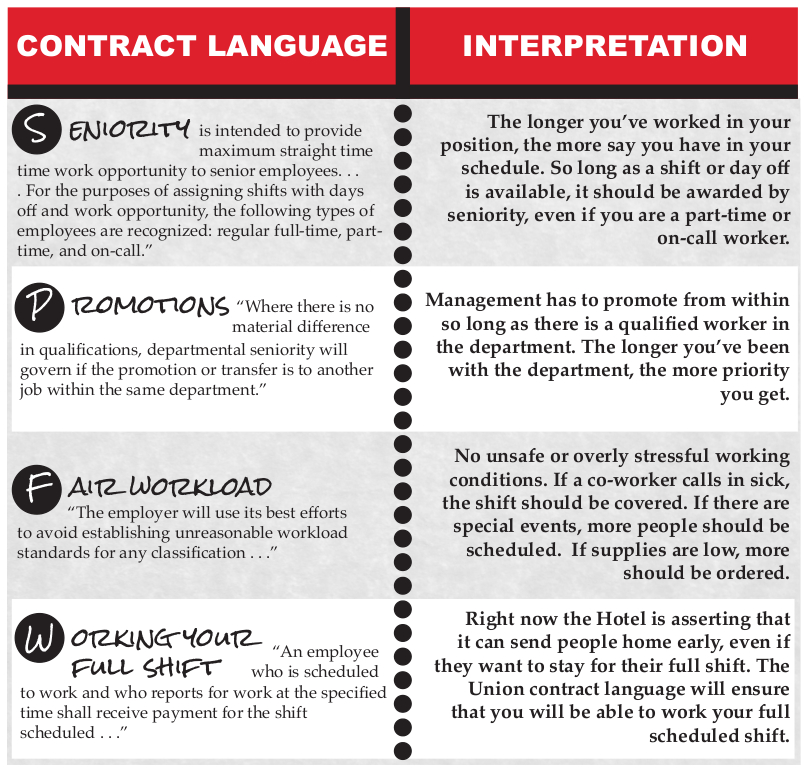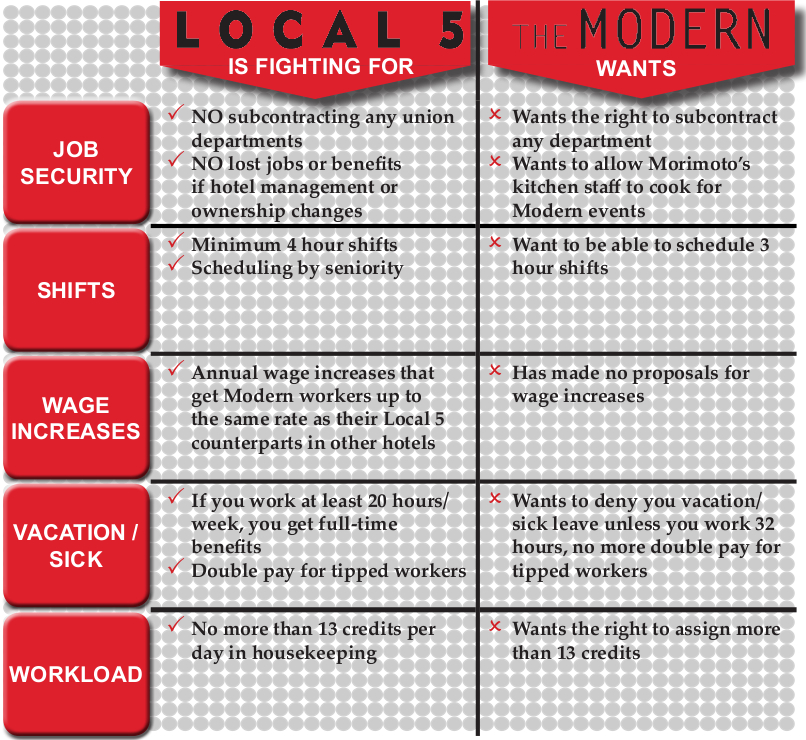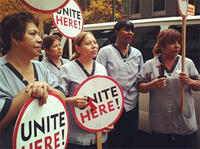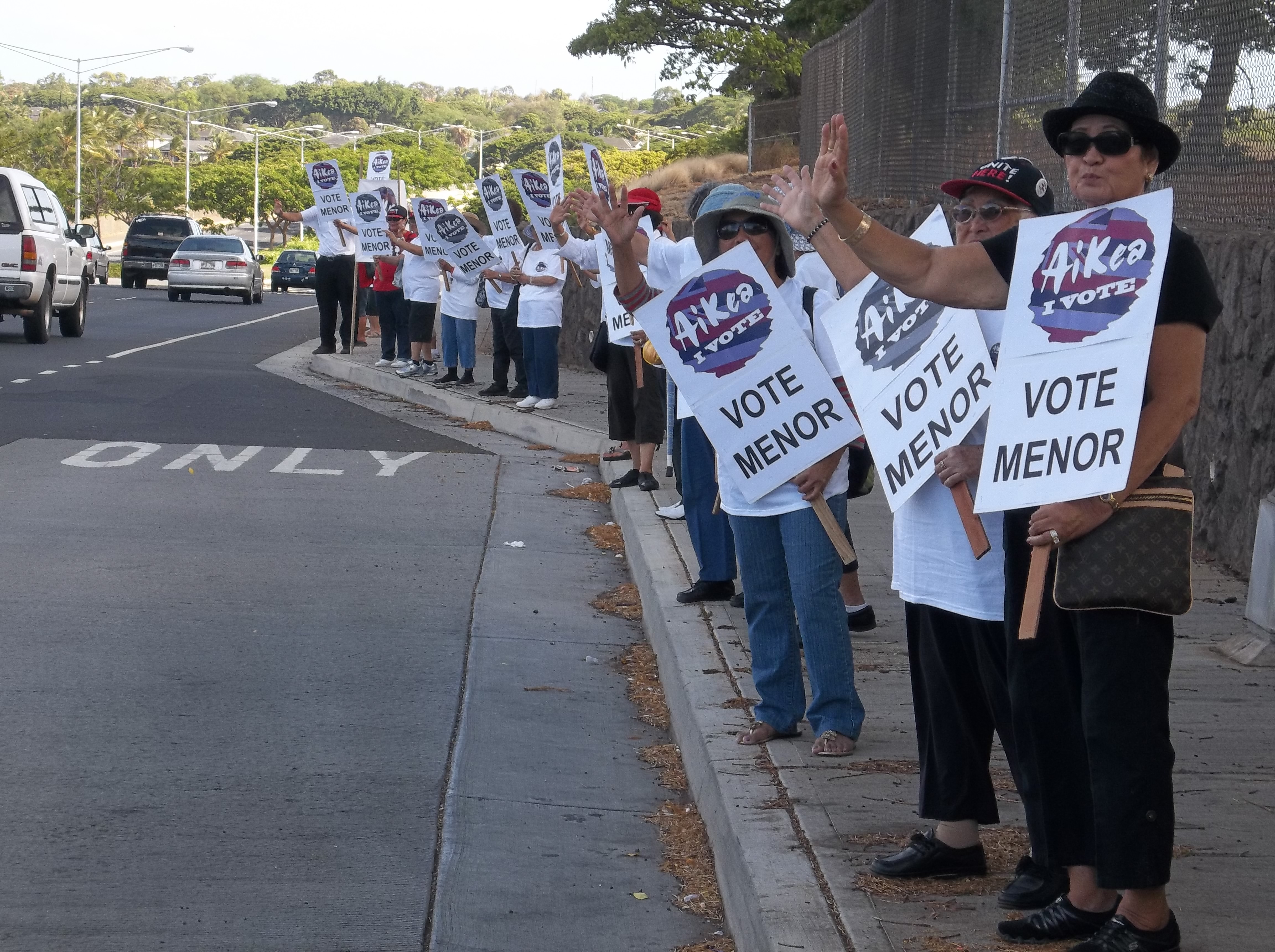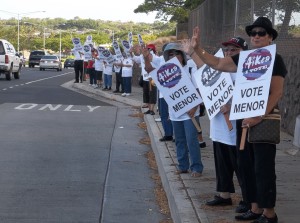Behind closed doors a policy is being devised that could raise medicine prices, drive down our wages, ban job-creating Buy America policies, undermine financial regulations aimed at controlling the banks that wrecked our economy while exposing Hawaiian Ceded Lands and environmental policies to challenge.
It is called the Trans-Pacific Free “Trade” Agreement. Negotiations include the U.S., Australia, Brunei, Chile, Malaysia, New Zealand, Peru, and Singapore. But the deal is intended to be open for others to join, including Japan, Indonesia, Russia and more.
A dirty secret of today’s “trade” pacts is that they are not mainly about traditional trade matters, like tariffs. Rather, they require countries to conform domestic policies to hundreds of pages of one-size-fits all international non-trade rules written in a closed door processes involving hundreds of corporations with the rest of us are locked out. This includes 600-plus official U.S.corporate trade advisors. Congresspeople, Hawaii’s Governor and state legislators, journalists and we people whose lives will be most affected cannot see what our negotiators are bargaining for — and bargaining away — until a deal is done and it is too late for changes.
Countries that fail to change their laws to meet these “trade” pact requirements are slammed with indefinite trade sanctions or cash damages. Just in past months, theU.S.was ordered to eliminate the dolphin-safe label on tuna cans and our anti-teenage smoking ban on flavored cigarettes. After trade sanctions on $2.3 billion ofU.S.trade, we just allowed entry for trucks from Mexico that don’t meet U.S.safety or environmental standards.
We will hear from the usual corporate sources that another “trade” agreement could expand exports. But the data is clear: our export growth rate to the countries we have these deals with is half of that to those we do not. And, we have lost lots of jobs thanks to the major trade deficit we suffer with the bloc of 14 previous Free Trade Agreement countries.
Thus, whether and under what terms a Trans-Pacific “trade” deal is done will affect the types of jobs available in our communities; whether the rapacious global banks that have seized control of Hawaii’s hotels can be made to pay their workers well; and whether Hawaii will be able to diversify its economy to provide jobs for more people. That’s because the proposed agreement would impose constraints on national and Hawaiian service sector, investment, and financial policy.
Also at stake is whether Hawaii will be able to free itself from dependence on imported oil and instead develop its potential for solar, wind and other renewables and the existence of strong consumer and food safety protections. The agreement will impose limits on energy policy and safety and inspection standards for fish, fruits, meat and more.
American’s worst job-offshoring corporations, major global banks, agribusiness, and pharmaceutical giants want this Trans-Pacific deal to be like NAFTA, the North American Free Trade Agreement, the first pact focused on undoing our basic public interest protections under the false brand of “trade” agreements. Labor, environmental, anti-poverty, family farm, and other advocates have demanded a “Fair Deal or No Deal.”
It is not looking good.U.S.negotiators are pushing the corporate line, insisting that the notorious NAFTA “investor-state” enforcement system by included. This empowers corporations to skirt our courts and go to World Bank and UN foreign tribunals to challenge our domestic policies and demand taxpayer compensation if they think our laws undermine their “expected future profits.”Hawaii’s land-use policies would be at special risk. Under NAFTA, over $350 million has been paid out to corporations over attacks on zoning, toxics bans, and more.
U.S.negotiators also are pushing new privileges for pharmaceuticals industry giants that would jack up medicine prices. This includes new rights for them to attack “drug formularies,” the cost-savings programs used by the U.S. Medicaid, Medicare and the Veterans Administration – and Australia,New Zealand and other nations. If the U.S.proposal is adopted,Hawaii and other states would have to pay for expensive new drugs Big PhRMA develops even if they provide no new benefits to patients.
And, that is what we know. Trans-Pacific FTA talks have taken place behind closed doors, and no draft texts have been formally released. A recent text leak revealed that U.S.officials signed a special deal not only to keep all documents secret, but to do so for four years after talks end! Civil society groups in the involved countries have launched an international “release the text” campaign to extract the draft texts. Those requests have not been met.
This extreme secrecy only makes us all wonder: just what all is being agreed to behind closed doors at APEC that cannot withstand public scrutiny.
